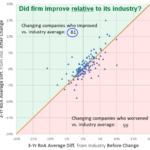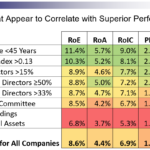Independent Franchise Partners (IFP) has submitted a shareholder proposal nominating Kanako Kikuchi (an experienced global pharmaceutical executive) and myself as independent directors. Glass, Lewis supports electing both of us, but it seems that ISS has “split the baby” and only supports me. If investors could vote for Ms. Kikuchi as well, it would greatly help ensure that the board makes a fully informed, objective and independent assessment of the strategy on an ongoing basis.
Both of us have no past relations with IFP, and take an approach that is completely agnostic and independent of IFP’s dividend proposal. We both believe that if shareholders do not opt for that proposal, – or in any case – it is most prudent to withhold any decisions about the strategy until such time as when we are on the board and can ask questions and are privy to all internal analysis and confidential information. Therefore, we would both join the board with no pre-decision(s) made before knowing all the facts. This is the only logical position to take as a truly independent director. I have informed IFP in no uncertain terms that my philosophy and legal duty is to answer to all shareholders, and that I may well not agree with positions that IFP has taken or may take in the future. IFP has no problem with this.
Many investors may not realize that unless Ms. Kikuchi is elected, there will be no one with global biopharma experience on this board just at the time when that skill set is most needed. Given the company’s proclaimed strategy to “bridge” into health science products (which could be a good one for all I know), this is not wise and is of great concern to me.





